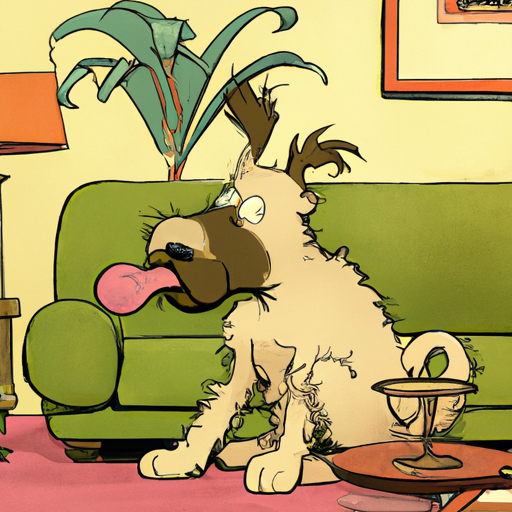Understanding Your Dog’s Behavior
As a caregiver, you’re probably familiar with your dog’s many habits. But have you ever wondered, “Why does my dog lick everything?” The truth is, this behavior might be more than just a quirky habit. In fact, it could be a signal of something more serious.
In the world of dogs, licking is a natural behavior. It’s one of the first ways a mother dog communicates with her puppies. But when a dog licks objects or people excessively, it might be a sign of stress, boredom, or a health issue.
The Role of Taste in Dog Licking
You may have noticed that your dog seems to find everything tasty. From your shoes to the couch, there’s nothing off-limits to their curious tongue. But why is that?
- Exploration: Dogs use their mouths to explore the world. They can pick up on various tastes and textures, providing them with valuable information about their environment.
- Taste: Some textures or tastes may be appealing to your dog. This is why they may continuously lick certain objects or people.
- Comfort: Licking can also be a soothing behavior for dogs. It releases endorphins, helping them to feel calmer and more comfortable.
Health Concerns Related to Excessive Licking
While it’s normal for dogs to lick things, excessive licking can indicate underlying health issues. Some potential health concerns include:
- Dental Disease: Dogs might lick due to discomfort in their mouth caused by dental disease.
- Gastrointestinal Issues: Excessive licking can be a sign of gastrointestinal issues, including nausea or indigestion.
- Skin Allergies or Infections: If your dog is continuously licking their paws or body, they might be suffering from skin allergies or infections.
- Neurological Problems: In some cases, excessive licking is a sign of neurological issues, such as cognitive dysfunction or obsessive-compulsive disorder.
Behavioral Causes of Excessive Licking
Sometimes, the cause of excessive licking isn’t physical—it’s behavioral. Here are some possible reasons:
- Boredom: Dogs who aren’t mentally stimulated may resort to licking as a way to pass the time.
- Anxiety: Dogs suffering from anxiety often develop repetitive behaviors, including excessive licking.
- Attention-Seeking: If your dog learns that licking gets your attention, they might continue to do it even when it’s not necessary.
How to Address Your Dog’s Excessive Licking
If you’re concerned about your dog’s excessive licking, the first step is to consult with a vet. They can help rule out any possible health issues. If the licking is due to a behavioral issue, you might need to work with a dog trainer or animal behaviorist.
Some strategies to manage excessive licking include:
- Providing plenty of mental and physical stimulation.
- Using distraction techniques, such as toys or treats.
- Rewarding your dog for calm behavior.
Frequently Asked Questions
Q: Is it normal for my dog to lick everything?
A: While it’s common for dogs to lick things, excessive licking could be a sign of an underlying issue.
Q: What does it mean if my dog won’t stop licking the furniture?
A: This could be due to a variety of reasons such as stress, boredom, or a health issue. Consult with a vet if you’re concerned.
Q: Can I train my dog to stop licking?
A: Training can help manage excessive licking, but it’s also important to address the root cause of the behavior.



